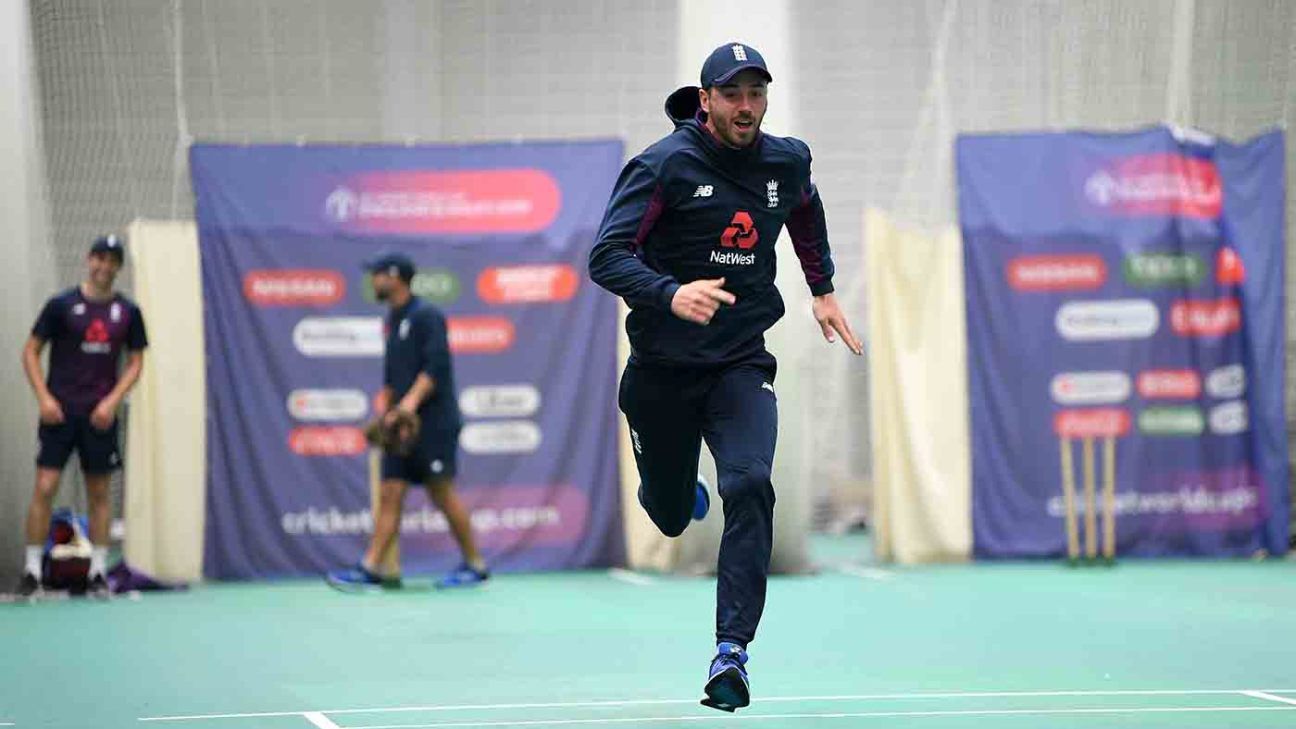
The film Jaws starts with a couple going for a flirtatious moonlit swim; the film Psycho starts with a couple enjoying a lunchtime tryst; the film Friday the 13th starts with a couple stealing away to a cabin to attend to some private business.
The point of all this (apart from cinema's insinuation that sex is a lethal business) is that sometimes danger lurks in unexpected places. So, relatively comfortable though England's progress may have been to this stage of the tournament, there are a couple of warning signs ahead of their match against Afghanistan that might, just might, turn out to be significant over the coming weeks.
The first of these is simply what we have learned from history. Nobody who has watched England for any period of time can have any level of complacency going into Tuesday's game. They will have seen England lose limited-overs matches to the Netherlands, Scotland and Ireland - all teams which failed to qualify for this tournament - in recent years and they will have seen them heavily beaten in the longer formats in Australia, India, the UAE and the Caribbean.
They will have noted, too, the nature of this Old Trafford surface. The match is to be played on the same track on which India beat Pakistan on Sunday. Meaning it is the same track on which Kuldeep Yadav turned one between the bat and pad of Babar Azam and conceded just 32 from his nine overs. While Eoin Morgan, England's captain, suggested that turn could have been produced by a surface that was "tacky" - ie damp - rather than dry, the fact is, whether it is dry, damp or at all worn, it will please Afghanistan.
Afghanistan certainly have the attack to exploit any help that may be available. In Rashid Khan, Afghanistan have a legspinner who has been rated the world's No. 1 bowler in both ODI and T20I cricket, while England's record against spin - while improving, particularly in ODIs - is not infallible. It's not so long since the Test side lost eight second-innings wickets to Roston Chase, after all. And Mohammad Nabi and Mujeeb Ur Rahman - Afghanistan's other spinners - have been as high as No. 6 in the ODI rankings, too. The sight of Merlyn, the spin-bowling machine, at England's training session on Monday, suggested they know the challenge awaiting them.
ALSO READ: Morgan doesn't rule out Hales return after Roy injury
At the same time, England have lost the services of one of their best players. Jason Roy has suffered a hamstring tear - and the ECB's reluctance to confirm the grade of tear suggests that, in the best-case scenario, he has a chance of being somewhere near fit - not necessarily match fit - for England's penultimate group match, against India, on June 30. Bearing in mind his last hamstring injury kept him out of action for seven weeks, however, and that he sustained another injury when he returned, it is hard to be wildly optimistic.
England's policy makes sense, though. Roy's ODI form is exceptional - he is averaging 77.12 at a strike-rate of 120.50 this year and has made three centuries and three half-centuries in his last eight games - and England will hope they can get through the next week without him. They face two of the weaker sides in the competition, after all (Sri Lanka are next, at Headingley on Friday), and they have a decent deputy in James Vince.
But England will want Roy back after that. Their final group games - against Australia, India and then New Zealand - are tough and England are likely to need to win at least one of them if they are to guarantee their place in the semi-finals. And if they are to prosper in the knockout stages, they will clearly want the services of one of their most dominant batsmen.
The potential loss of Roy is exacerbated by concerns elsewhere. Moeen Ali may have enjoyed excellent form in the IPL, but he is struggling to adapt to batting at No. 7 - he is averaging 16.77 in ODI cricket since the start of 2018 - which has given England's batting line-up a slightly less daunting impression than has been the case in recent years. There is no Alex Hales, Joe Clarke (both deemed unavailable for selection) or Sam Billings (injured) to call up, either. As a result, their bench strength isn't quite as strong as it has been. With respect to Dawid Malan and Joe Denly, neither have scored ODI half-centuries this decade. They are, of course, fine players. But they're not Jason Roy.
On the other hand, England's bowling has been impressive. But there are still concerns about Mark Wood's ankle - England had originally hoped to rest him here, but that now seems unlikely after Liam Plunkett missed training on Monday due to illness - while Adil Rashid has been struggling with a shoulder injury for some months. Morgan insisted Rashid was completely recovered now but tournament figures which show two wickets at a cost of 101.50 tell a different story. And we haven't even mentioned the concerns over Morgan's back (or finger) or Chris Woakes' knee. None of this means there are fatal holes in England's plans. But there are little cracks.
Perhaps this seems overly pessimistic. Perhaps it reflects the scars of watching England's last World Cup campaign (it should probably be spelled cam-pain) in Australia and New Zealand. This new England side has proved they are made of sterner stuff than their predecessors, after all, and they really should be expected to win both their next games pretty comfortably.
But there are several ingredients for an upset at Old Trafford on Tuesday. And with that tough finish to the group stages, an England team with several walking wounded cannot afford a slip.















 Phone: (800) 737. 6040
Phone: (800) 737. 6040 Fax: (800) 825 5558
Fax: (800) 825 5558 Website:
Website:  Email:
Email: 






